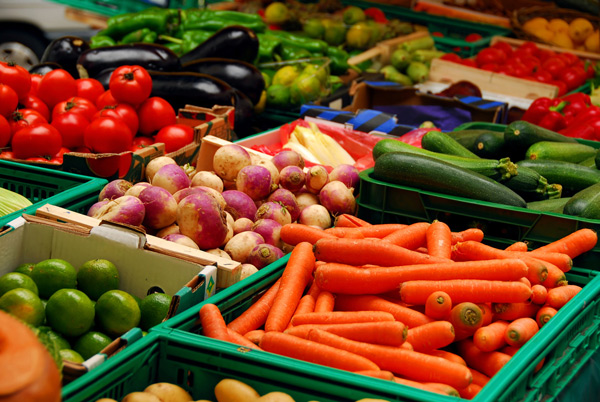UK sales of organic food fell by 3.7% last year as supermarkets cut back on own-brand organic labels.
However, global sales rose by 8%, according to the Soil Association. This increase follows an 8.8% rise in 2010.
The Bristol-based association’s organic market report also found that 83% of UK households bought organic products in 2011, with dairy products and fresh fruit and vegetables the most popular choices.
The details emerged at the organisation’s 30th anniversary conference in London last week, where the message was that organic farming can feed the world – provided people eat differently, feed livestock differently and waste less food.
Soil Association director Helen Browning said the UK slump was mainly due to a 5% drop in supermarket sales – which account for nearly three quarters of organic food sales – as retailers cut their own-brand organic ranges.
But growth remained strong in all other major European markets and the US (the world’s leading organic market), she said, pointing out that:
- Sales of organic products in China have quadrupled in the last five years
- Brazil is reporting an annual growth rate of 40%
- Market analysts predict that organic sales in Asia will grow by 20% a year over the next three years.
Ms Browning said: “Let’s not ever fall victim to the hype that organic is over. If you want to make the biggest difference in terms of biodiversity, sustainability and animal welfare choose organic.”
Meanwhile, the Soil Association’s Feeding the Future report says there is already enough food produced today for everyone in the world, yet nearly one billion people are hungry, another one billion malnourished, with another one billion people overweight.
With the world’s population predicted to rise to nine billion people by 2050, some have argued that a 70% increase in food production will be needed.
“But this assumes the spread of a Western diet, involving much higher consumption of meat and dairy products, to people in the Global South, while also assuming there will be no reduction in the amount eaten in the Global North,” the report says.
The authors said a shift involving eating less, but better quality, meat and dairy would allow more people to be fed while reducing greenhouse gas emissions.
Some 35–40% of all cereals produced worldwide are now fed to livestock. This could rise to 50% by 2050 if meat consumption continues to rise as predicted, says the report. It also says that:
- If all cereals were fed to people not animals, we could feed an extra 3.5 billion people.
- If meat and dairy consumption was held at the level reached in 2000, 400m tonnes of cereals would be freed for human consumption, enough to feed an additional 1.2 billion people in 2050.
- A switch from meat which is mainly fed on grains, to beef, lamb and mutton from grazing animals eating grass which humans cannot eat, would provide better quality meat and reduce greenhouse gas emissions.
- Reducing food waste is also crucial; About 280–380kg of food per person per year is now wasted in the Global North, compared to 125–165kg in low income countries in the Global South.
For more information, visit the Soil Association.
































